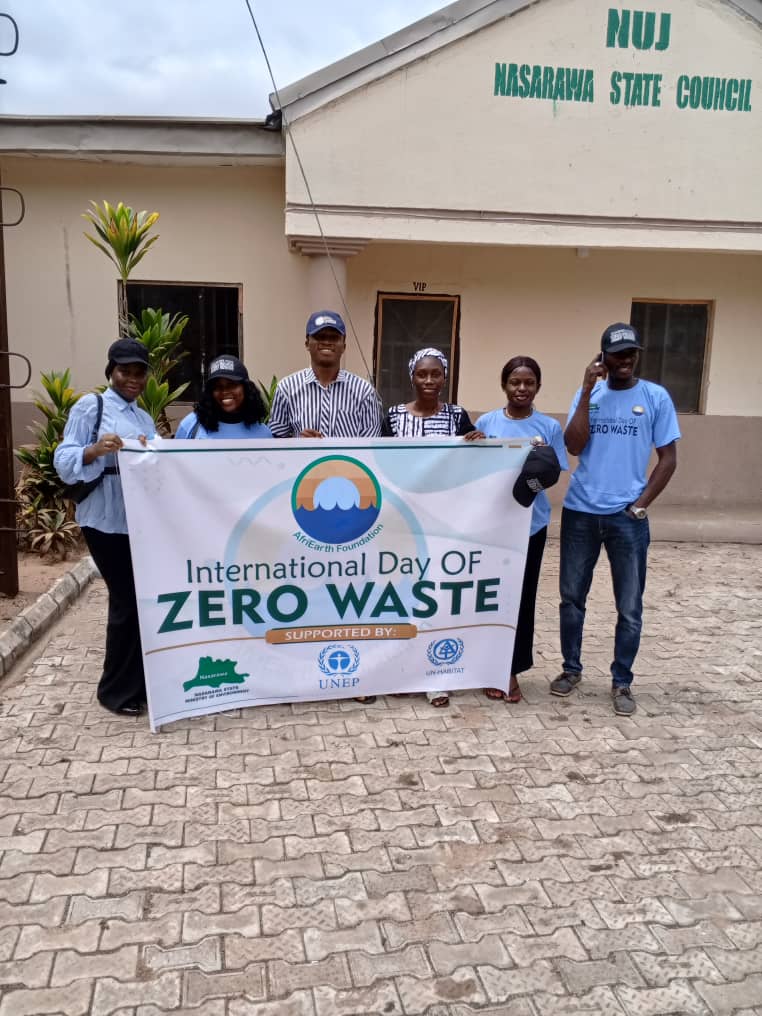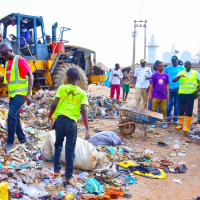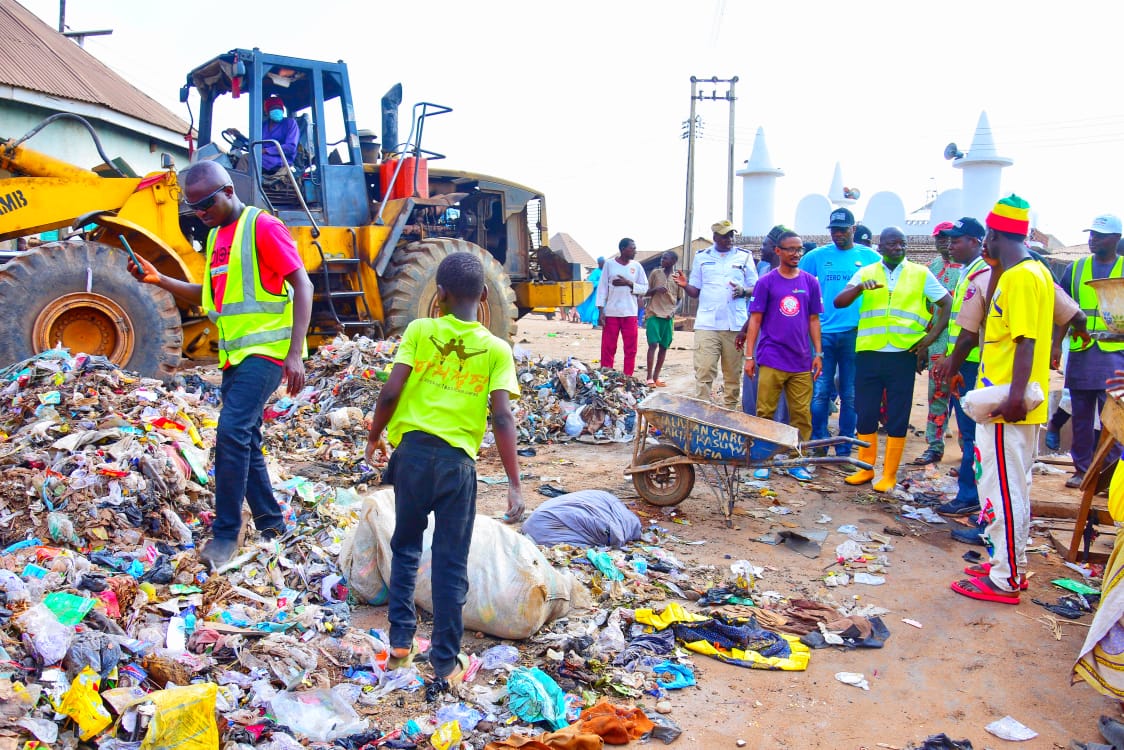by Lawrence Mayaki-Akinpelu
The damages done on our natural environment, vegetations, forest, plants, animals and mineral; all natural resources and events are the major causes of hunger in Nigeria and West Africa in general. These human activities that destroys nature often result to soil degradation; loss of soil organisms and biodiversity, drought, flood, extreme weather conditions etc. which makes farmland barren and reduces both the amount of and quality of food to be grown.
Practices like deforestation, soil degradation, and climate change, significantly impacts food production and contributes to food insecurity. These factors can lead to reduced crop yields, loss of biodiversity, and alterations in weather patterns, ultimately diminishing the capacity of land and ecosystems to support agriculture.
The alarming use of land and water bodies in Nigeria has led to more than 60% of nature loss. Unsustainable land and water use practices are major contributors to food shortages. Degradation of land, soil, and water resources reduces the potential for food production, and water scarcity limits irrigation and crop growth, leading to decreased yields and higher food prices.
Deforestation, often for development, timber production, charcoal production, agricultural land expansion or any other reason, negatively impacts food production by reducing the overall capacity of land for agriculture, reducing fertility, disrupting ecosystems, and contributing to climate change. Loss of trees can lead to soil erosion, changes in microclimates, and altered water cycles, leading to less productive land which can harm crop yields. About 20 years back, our forest produces more than 30% of food produced in Nigeria, it provides large quantities of organic fruits, nuts and several other native food, but today, most of our natural forest are gone due to deforestation, and we have lost several fruits and food like wall nut, varieties of citrus, banana, plantain, baobab, medicinal trees, wild animals and several other native trees that are of economic importance. In Nigeria, the regulation for the protection of forest is made, but neglected by poor enforcement, sensitization, community engagement and of course acute corruption. I have gone to so many communities that gods are blamed for the challenges of low crop quantity and quality, loss of lakes and drying of other waters sources, and the shortage of pastures for animals to forage. They failed to recognize that their woes were caused by the destruction of forest by the humans. Back in the days, our grand parents who were from the rain forest region visit their friends at the savannah grassland region with gift of those tropical food gotten from the wild, and those from the savannah region take along food from baobab and other native food to friends in southern Nigeria, unfortunately our rain forest is fast depleting into a dry region due to shortage of tall trees, evergreen leaves, buttress roots and broad leaves in the rain forest and our savannah grassland is degrading into desert because shortage of grass cover, shrubs and tree in the savannah. Therefore, the government must rise to reclaim these species before they completed go into extinction.
Over-farming can deplete nutrients in the soil, leading to lower yields and increased reliance on chemical fertilizers, which can further degrade the soil and water. Clearing of land and continues growing of the same crops for a long period on a piece of land could cause loss of soil fertility, and farmers resolving to the use of artificial fertilizer and chemical pesticides to improve crop yield. These are the challenges we are presently experiencing in our food system, where farmers are faced with the challenges of low yield due to soil infertility and shortage in water. It’s not too late we adopt a sustainable practice to boost food production.
Several streams, lake and wells are drying up, and pollution of water sources, including industrial and agricultural runoff, can render water unusable for irrigation and drinking, further impacting food production and human health. Many communities are encountering shortage in food production due unstable rainfall, drought and loss of water in streams, lakes and dams for irrigation.
Changes in rainfall patterns, increased temperatures, and more frequent droughts and floods, all exacerbated by climate change, can further strain water resources and impact crop production. Hence, causing a cut in food production resulting to hunger and poverty. We must adopt better adaptive measures and resilience building system in the people to be able to live with the phenomenon.
For we to improve food production in Nigeria, we must also address the challenges stated here, and it is pertinent that the leadership of government must responsibly rise to adopt sustainable leadership.
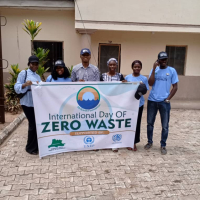
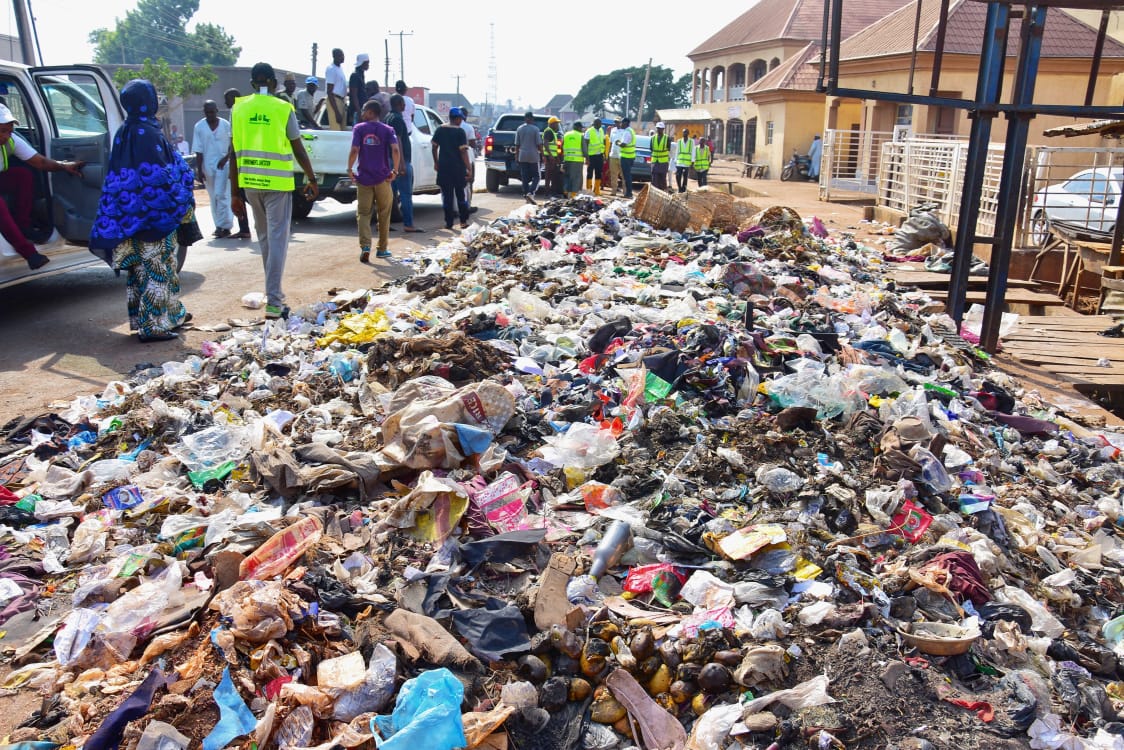
 2025 INTERNATIONAL DAY OF ZERO WASTE REPORT: The activities of the event ended on a good note. The Nasarawa State Government approved the partnership of AfriEarth Foundation and Nasarawa State Government to lead Nasarawa State towards ZERO WASTE. AfriEarth Foundation is open to collaboration from recyclers, non-profit organization, entrepreneurs, international bodies and other key players in environmental protection.
2025 INTERNATIONAL DAY OF ZERO WASTE REPORT: The activities of the event ended on a good note. The Nasarawa State Government approved the partnership of AfriEarth Foundation and Nasarawa State Government to lead Nasarawa State towards ZERO WASTE. AfriEarth Foundation is open to collaboration from recyclers, non-profit organization, entrepreneurs, international bodies and other key players in environmental protection.